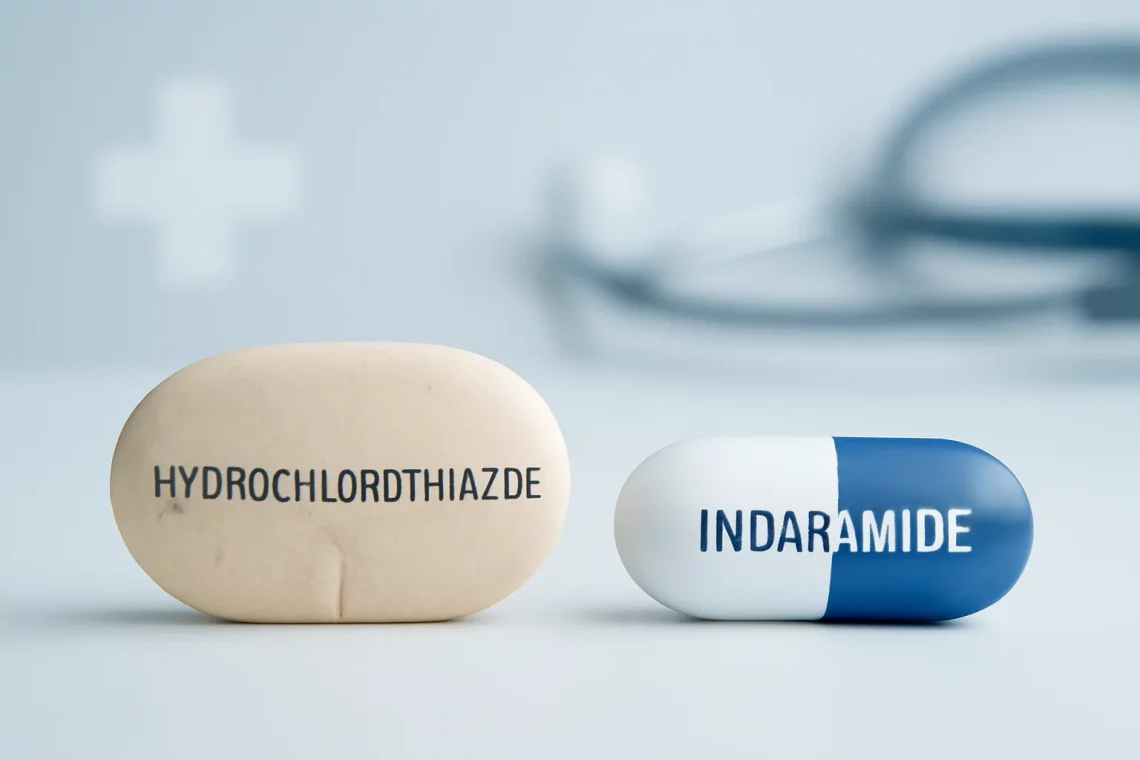-
Hydrochlorothiazide vs Chlorthalidone: Choosing the Right Diuretic
High blood pressure and fluid retention are common health challenges faced by many individuals. Among the various treatment options available, thiazide diuretics, such as hydrochlorothiazide and chlorthalidone, have gained popularity due to their effectiveness in managing these conditions. Both medications work by promoting the excretion of sodium and water through the kidneys, helping to lower blood pressure and reduce swelling. However, despite their similar uses, these two drugs have distinct properties that can influence their effectiveness, side effects, and suitability for different patients. The choice between hydrochlorothiazide and chlorthalidone often depends on various factors, including the patient’s overall health, the presence of other medical conditions, and individual responses to treatment.…
-
Hydrochlorothiazide vs Indapamide: Key Differences Explained
High blood pressure, also known as hypertension, is a prevalent health condition affecting millions of individuals worldwide. Often dubbed the “silent killer,” hypertension can lead to serious health complications if not managed properly. As such, effective management of blood pressure is crucial for maintaining overall health and preventing associated risks such as heart disease, stroke, and kidney problems. Among the various treatment options available, both hydrochlorothiazide and indapamide stand out as commonly prescribed diuretics. These medications play a significant role in helping patients regulate their blood pressure levels while also contributing to fluid balance in the body. Understanding the differences and similarities between hydrochlorothiazide and indapamide can be vital for…
-
Hydrochlorothiazide vs Dyazide: Key Differences and Uses Explained
Hydrochlorothiazide and Dyazide are two medications often discussed in the context of managing hypertension and fluid retention. Both of these drugs belong to the class of thiazide diuretics, which are commonly prescribed for lowering blood pressure and reducing excess fluid in the body. While they share some similarities, they also possess distinct characteristics that can influence a healthcare provider’s choice when determining the most appropriate treatment for a patient. Understanding the nuances between Hydrochlorothiazide and Dyazide can be beneficial for patients, caregivers, and healthcare professionals alike. The choice of medication can depend on various factors, including the patient’s overall health, specific medical conditions, and the presence of other medications. Furthermore,…











